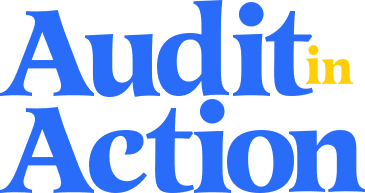The Rise in S&P 500 ESG Reporting
The public company auditing profession faces an ever-evolving corporate reporting landscape. Investors and other stakeholders increasingly seek company prepared information outside financial statements, including environmental, social, and governance (ESG) information which has become a top priority for companies.
The demand for ESG-related disclosures is driven by large institutional and private equity investors, retail investors, customers, employees, and other stakeholders. As a result, governments and regulators around the world are taking a closer look at reporting requirements to address stakeholders’ information needs. With increasing stakeholder demand and growing regulatory developments, like the European Union’s Corporate Sustainability Reporting Directive (CSRD) and the U.S. Securities and Exchange Commission’s (SEC’s) highly anticipated final climate-related disclosures rule, it’s clear that ESG reporting is here to stay.
The Center for Audit Quality conducted our annual analysis of S&P 500 ESG reports and CDP Climate Change Questionnaires to determine ESG trends among leading companies. Our findings reveal how many companies report ESG information, what reporting standards and frameworks were used, and if they received assurance from a public company auditor in 2021. Keep reading for our key takeaways.
Increased Assurance from Public Company Auditors
An encouraging trend in our analysis of 2021 S&P 500 ESG data is that more companies are seeking third-party assurance from public company auditors. In 2021, 60 companies obtained assurance from public company auditors compared to 43 in 2020, a nearly 40% increase. Companies obtaining assurance from other assurance providers also increased, with 268 companies reporting that they engaged other assurance providers compared to 245 in 2020.
When it comes to the scope of information subject to assurance, companies increased the scope of information subject to assurance by public company auditors in 2021 – shifting from mostly seeking assurance over only greenhouse gas (GHG) emissions to mostly obtaining assurance over GHG emissions and 1-3 other ESG metrics (e.g., water, energy, waste metrics). 31 companies who engaged a public company auditor in 2021 obtained assurance over their GHG metrics plus 1-3 additional ESG metrics.
Public company auditors play a critical role in serving the public interest and supporting the flow of reliable information for decision-making. Their unique skill set, experience incorporating experts into engagements, and understanding of business processes enable them to easily adapt to new reporting landscapes and requirements, and there are many benefits to engaging a CPA for third-party assurance of ESG information.
The public company auditing profession has decades of experience in developing methodologies that enable them to adhere to professional standards. Auditors also comply with rigorous requirements for independence, firm systems of quality control, and subject matter competency. Auditor assurance over ESG metrics can enhance stakeholder trust and confidence in management’s assertions, data, and disclosures.
Rising GHG Scope 3 Emissions Reporting
We also analyzed the GHG scope 3 emissions categories reported in 2021. Overall, companies increased the extent to which they reported each category.
The most reported category in 2020 and 2021 was business travel, with 327 companies reporting this data compared to 258 in 2020. Fuel and energy-related activities was the second most reported category, followed by purchased goods and services. Purchased goods and services saw the largest increase from 2020, with 71 additional companies reporting this category in 2021.
Overall, companies also increased the extent to which they assured each of the GHG scope 3 emissions categories. Business travel, fuel and energy-related activities, and employee commuting were the most assured categories in both 2020 and 2021. Investments had the highest percentage increase at 157%, with 18 companies receiving assurance in 2021 compared to 7 in 2020.
Standards and Frameworks
There are four commonly used ESG reporting standards and frameworks – Sustainability Accounting Standards Board (SASB) Standards, , Task Force on Climate-Related Financial Disclosures (TCFD) Recommendations, Global Reporting Initiative (GRI) Standards and the Integrated Reporting Framework.
S&P 500 companies continue to use these standards and frameworks to varying degrees, whether fully adopting the standard or framework or using them as a reference when determining what information to include in their ESG report.
The SASB Standards remain the most frequently cited of the four, with 452 companies utilizing the standards in 2021, up from 410 in 2020. Usage of the TCFD Recommendations, the GRI Standards, and IR Framework also increased in 2021. More than 290 companies referenced three or more standards, a significant increase from last year’s 229.
Our Spring 2023 Audit Partner Pulse Survey revealed that 41% of audit partners say the diversity of standards and frameworks for ESG reporting is a top challenge facing companies in their industry sector. The CAQ continues to advocate for policies that would enhance and standardize climate-related disclosures in the US to give companies and investors clarity around ESG information. We expressed support for a globally accepted ESG reporting system that is built from existing standards and frameworks in our comment letters to the International Sustainability Standards Board (ISSB) and the SEC.
ESG remains a topic of focus for our profession and as we prepare for the SEC’s upcoming climate-related disclosures rule, the CAQ is committed to developing resources that enable public company auditors to best meet investor needs for these disclosures and maintain audit quality. Explore the full S&P 500 ESG analysis here.
